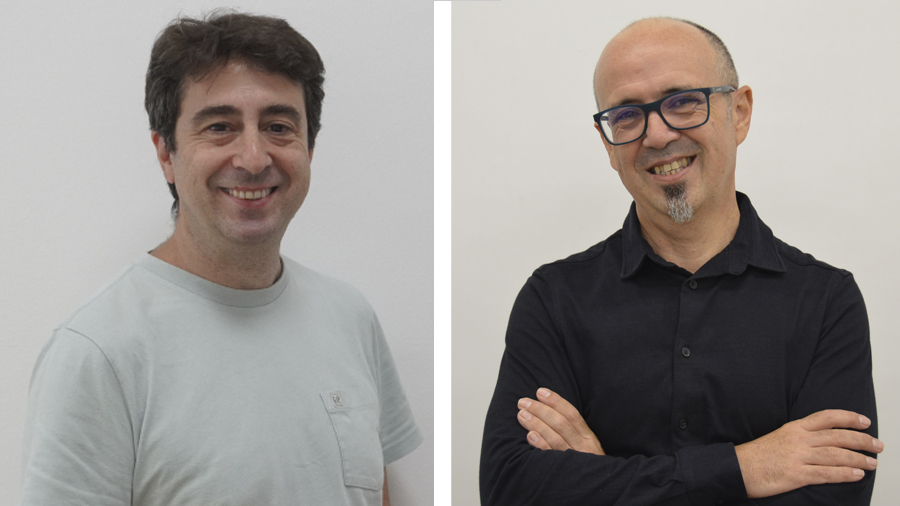Researchers Albert Quintana and Salvador Ventura lead the two UAB research projects that were awarded funding in the 8th Call for Health Research from the "la Caixa" Foundation. The projects propose innovative approaches that could improve the treatment of mitochondrial diseases and Parkinson's disease, respectively.

The 2025 Call for Health Research from the "la Caixa" Foundation has selected 34 cutting-edge biomedical research projects, from among the 714 proposals submitted. The winning projects will be led by 25 research centres, universities and hospitals in Spain, and 9 in Portugal. The total amount of funding offered in the programme is 26 million euros.
The projects awarded to the UAB are led by Albert Quintana, researcher at the Institut de Neurociències (INc-UAB) and associate lecturer at the Department of Cell Biology, Physiology and Immunology, and Salvador Ventura, researcher at the Institute of Biotechnology and Biomedicine (IBB-UAB), professor at the Department of Biochemistry and Molecular Biology, and director of the Parc Taulí Research and Innovation Institute (I3PT).
Fighting brain damage by rethinking the mitochondria
Albert Quintana will carry out the project "Lipid droplets as immunometabolic mediators in mitochondrial disease encephalopathy" , which aims to uncover why certain brain cells are more vulnerable than others in mitochondrial diseases. These are rare—affecting approximately 1 in 5,000 children—and devastating pathologies that damage mitochondria, the organelles responsible for producing most of the energy cells need to function properly.
Quintana and his team will investigate whether damaged mitochondria in brain cells can trigger a false alarm that makes the cells believe they are under viral attack. This erroneous response would cause lipid accumulation inside the cell, which in turn could lead to further damage and ultimately cell death. Using a mouse model that accurately simulates the human disease, project researchers have already found evidence of this abnormal immune response and the resulting lipid accumulation in the brain. They will now use advanced tools to study the development of this process in real time. Specifically, they will analyse the formation and behaviour of lipid droplets (adiposomes) in affected brain cells and their relationship with the immune response. They will also investigate whether blocking this response or modifying the way cells manage lipid accumulation could protect the brain and improve symptoms.
The results obtained could lead to new treatments, not only for mitochondrial diseases but also for other conditions related to neurodegenerative disorders involving mitochondria.
The project has received 499,970 euros in funding.
Innovative vaccine for the treatment of Parkinson's disease
Salvador Ventura will be working in consortium with Analía Bortolozzi, researcher at the Spanish National Research Council (CSIC), on the project "A Next-Generation Vaccine for Parkinson's Disease".
Current treatments only allow us to control the initial symptoms of Parkinson's disease, but they do not halt the progress of this brain disorder, which seriously affects movement and quality of life. Salvador Ventura and his team's project focuses on the development of a new vaccine, NEUROVAX, which targets a specific region of a protein that aggregates and damages the brain cells of people affected by this disease. By blocking this region, the vaccine aims to prevent damage to brain cells and improve motor and cognitive functions.
The proposed vaccine, based on nanotechnology methods, trains the immune system to produce antibodies specifically targeting harmful protein aggregates. This innovative strategy has already shown promising preliminary results in animal models. The researchers now want to validate its efficacy in preclinical trials, with the hope of later conducting trials in humans.
The project is expected to achieve a significant reduction in harmful protein aggregates and an improvement in motor and cognitive functions. This would significantly improve the lives of patients and their families, and in the long term researchers aim to find a possible preventive treatment for the disease.
To project has received 628,288 euros in funding.






